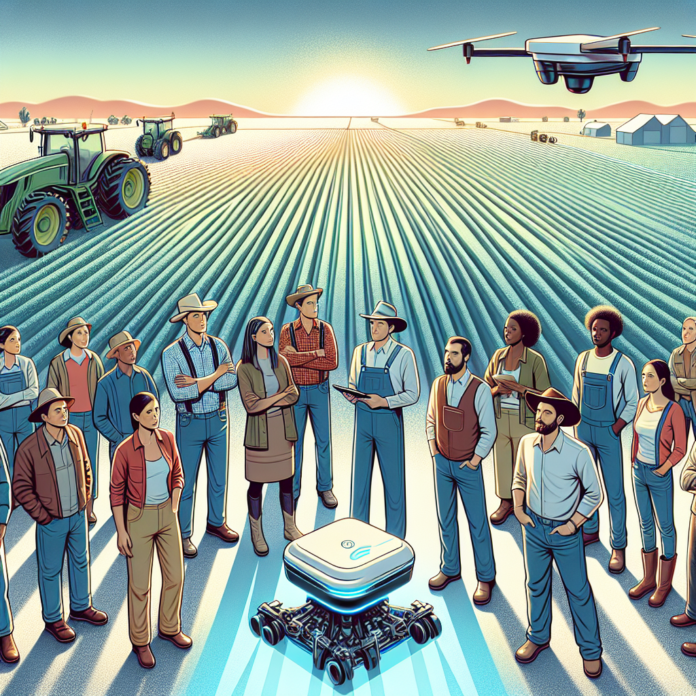Farmers to Benefit from New Agricultural Technology
Farmers to Gain from Innovative Agricultural Technologies
Recent advancements in agricultural technology promise to significantly enhance the productivity and efficiency of farmers around the globe. With the integration of cutting-edge tools and practices, farmers can expect improved crop yields, better resource management, and increased sustainability.
Advancements in Precision Agriculture
One of the most notable developments in this field is precision agriculture, which utilizes data analytics, GPS technology, and IoT devices to optimize farming practices. By monitoring soil conditions, weather patterns, and crop health in real-time, farmers can make informed decisions that lead to reduced waste and increased outputs.
Benefits of Drones and Robotics
Drones and robotics are also transforming the agricultural landscape. Drones equipped with advanced imaging technology allow for aerial surveys of farmland, enabling farmers to identify areas that require attention, such as pest infestations or nutrient deficiencies. Meanwhile, robotic systems can automate repetitive tasks like planting, harvesting, and weeding, thereby saving time and labor costs.
Enhanced Sustainability Practices
In addition to efficiency, new agricultural technologies are promoting sustainable farming practices. Techniques such as vertical farming and hydroponics are gaining traction, allowing farmers to produce food in urban areas with minimal land use and reduced water consumption. Furthermore, biotechnological innovations are leading to the development of crops that are more resilient to climate change and pests, ultimately reducing the need for chemical fertilizers and pesticides.
Access to Resources and Training
To ensure that farmers can leverage these technologies, it is crucial to provide access to resources and training. Initiatives that offer workshops, online courses, and financial assistance for purchasing new equipment can empower farmers to adopt these innovations effectively. Collaboration between governments, agricultural organizations, and tech companies is essential to create a supportive ecosystem that fosters growth and development in the agricultural sector.
Conclusion
As agricultural technologies continue to evolve, the potential benefits for farmers are immense. By embracing these innovations, farmers can not only increase their productivity but also contribute to a more sustainable and resilient food system. The future of farming looks promising, and embracing technology will be key to overcoming the challenges of feeding a growing global population.


